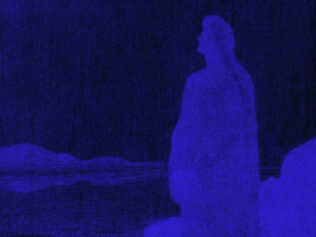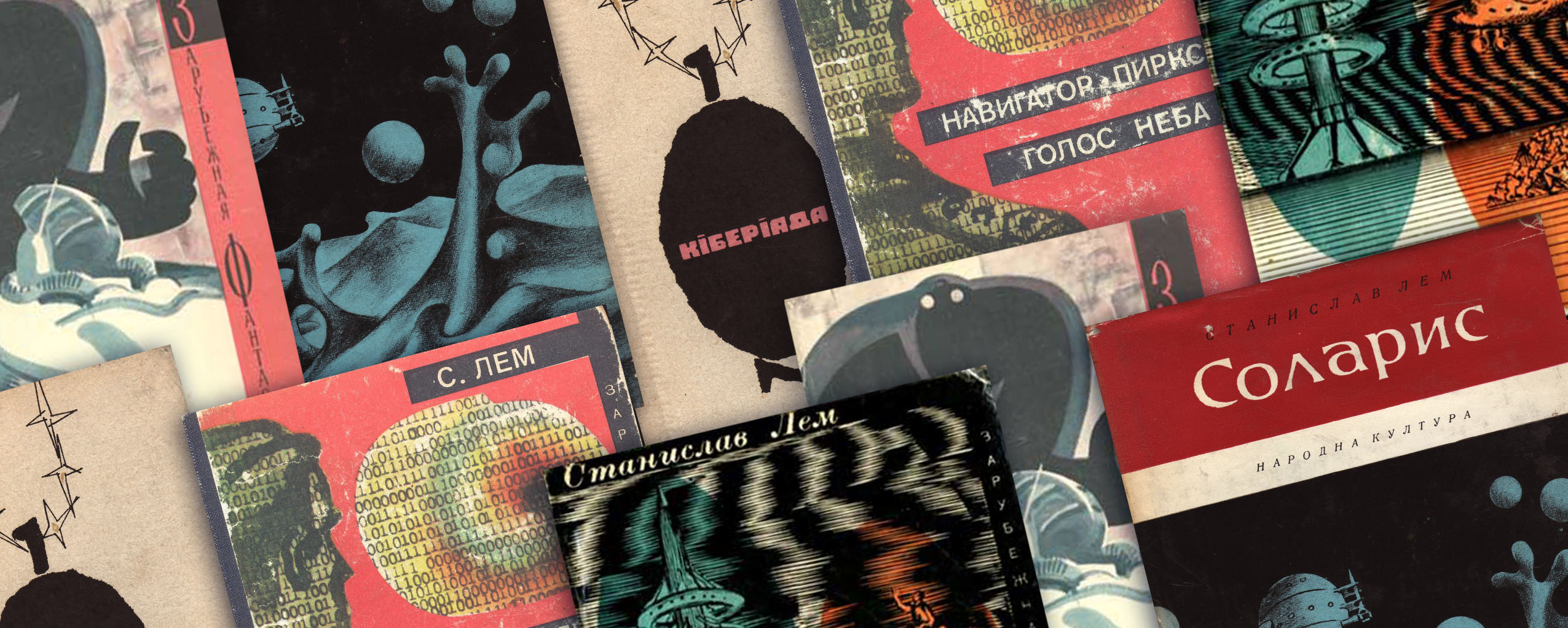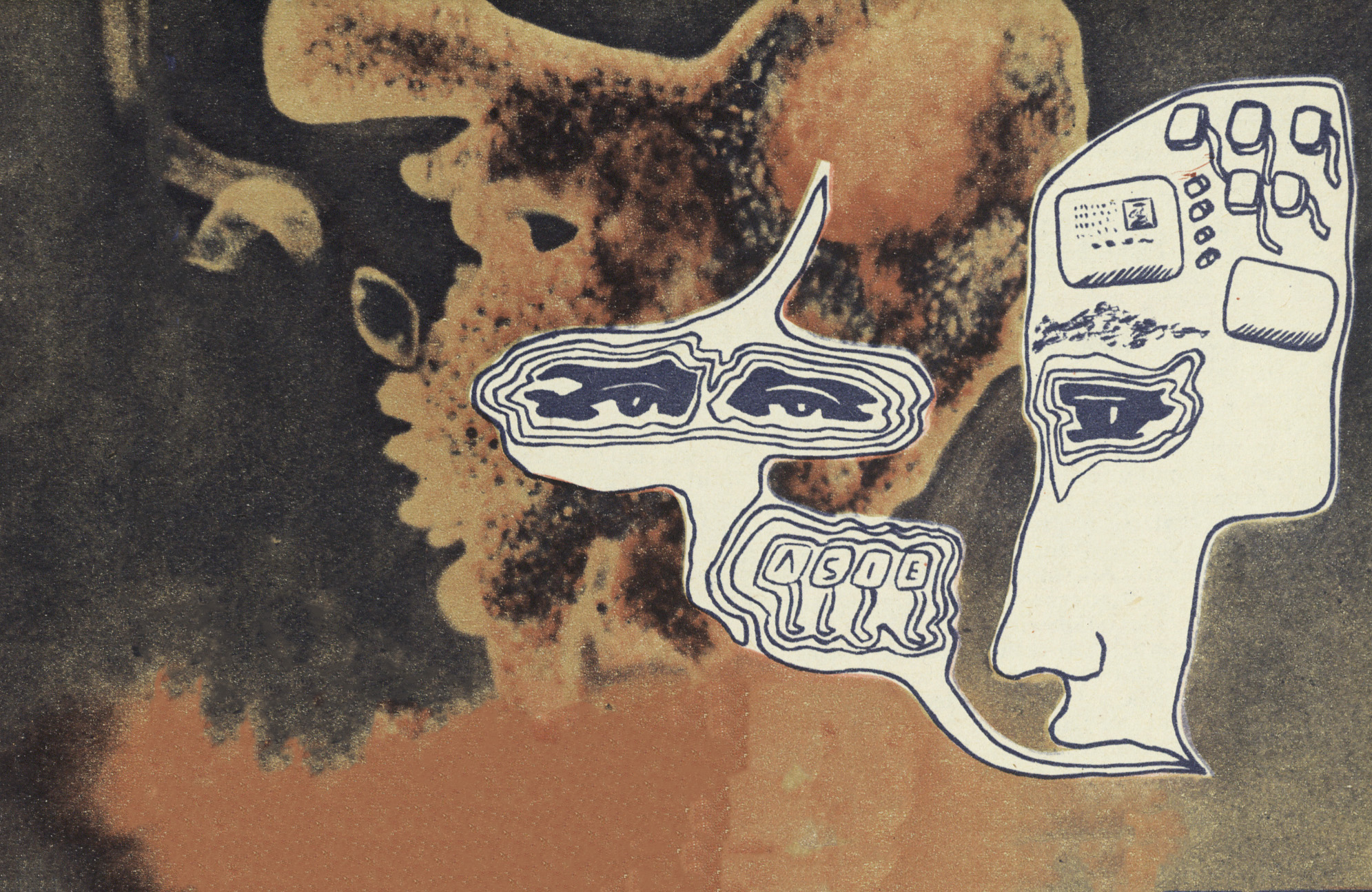
How did Stanisław Lem imagine the future? It turns out that we live surrounded by technologies and gadgets, the development, introduction, and workings of which were accurately predicted by the sci-fiction writer half a century ago—from the internet to smartphones and 3D printers. What other formerly dreamed tomorrow still awaits us?
The Internet and Google (Lem: the Trion Library)
“Trion can store not only luminescent images, reduced to a change in their crystal structure, that is images of book pages, not only all kinds of photographs, maps, images, graphs and tables—in other words, anything that can be observed by sight. Just as easily, Trion can store sounds, the human voice as well as music, there is also a way to record scents.”
Obłok Magellana [The Magellanic Cloud] (1955)
Smartphones
“We use it today without even thinking about the efficiency and might of this great, invisible net which enlaces the globe. Whether it be in one’s Australian studio, or in a lunar observatory, or on board of an airplane—how many times has every one of us reached for our pocket receiver and called upon Trion Library central, naming the desired work which, within a second, appeared in front of us on the television screen? Nobody even ponders the fact that owing to the perfection of the devices, each Trion can be used at any time by any number of users without them disturbing one another in the least.”
Obłok Magellana [The Magellanic Cloud] (1955)
3D Printers
“Trion can finally include a record of a ‘manufacturing formula.’ Connected to it via radio transmission, the automaton produces the item needed by the recipient. In this way, even the most sophisticated whims of fantasists desiring antique-style furniture or the most extraordinary clothing can be satisfied. After all, it is difficult to send the unimaginable diversity of goods that one might want on rare occasions to every corner of the world.”
Obłok Magellana [The Magellanic Cloud] (1955)
World Wide Web
“[…] A gradual accretion of informatic machines and memory banks creates a governmental, continental, and eventually planetary computer network […].”
Dialogues (1957)
E-books and E-readers (Lem: Optons)
“I spent the afternoon in a bookstore. There were no books in it. None had been printed for nearly half a century. And how I had looked forward to them, after the microfilms that made up the library of the Prometheus! No such luck. No longer was it possible to browse among shelves, to weigh volumes in the hand, to feel their heft, the promise of ponderous reading. The bookstore resembled, instead, an electronic laboratory. The books were crystals with recorded contents. They can be read with the aid of an opton, which was similar to a book but had only one page between the covers. At a touch, successive pages of the text appeared on it.”
Return from the Stars (1961)
Virtual Reality (Lem: Phantomatics)
“What can a person connected to a phantomatic generator experience? Everything. He can climb the Alps, wander around the Moon without a spacesuit or an oxygen mask, conquer medieval towns or the North Pole while heading a committed team and wearing shining armor. He can be cheered by crowds as a marathon winner or the greatest poet of all time and receive a Nobel Prize from the hands of the Swedish king; he can love Madame de Pompadour and be loved back by her; he can enter into a duel with Iago to avenge Othello or get stabbed himself by Mafia hitmen. He can also experience enormous eagle’s wings growing on his back; he can fly and then become a fish again and spend his life on a coral reef; as a shark he can career with his mouth wide open toward his victims; he can even capture the swimmers, eat them with great relish, and digest them with gusto in a quiet corner of his underwater cave. […] He can be a prophet, with an additional guarantee that all his prophecies will be fulfilled one-hundred percent; he can die and be resurrected many times over.”
Summa Technologiae (1964)
Fake News and Post-truth
“Yet, it turns out that freedom of expression sometimes presents a greater threat to an idea, because forbidden thoughts may circulate in secret, but what can be done when an important fact is lost in a flood of impostors, and the voice of truth becomes drowned out in an ungodly din? When that voice, though freely resounding, cannot be heard, because the technologies of information have led to a situation in which one can best receive the message of him who shouts the loudest, even when the most false?”
His Master’s Voice (1968)
Synthetic Insects (Lem: Synsects)
“Some of the pseudo-insects could pierce the human body like bullets; others form optical systems to throw sunlight over wide areas, altering the temperature of large air masses so as to produce heavy rainfall or fair weather, according to the needs of the campaign. There existed ‘meteorological insects’ corresponding to nothing we know today. The endothermic ‘synsects,’ for example, absorbed large quantities of energy for the sole purpose of causing a sudden drop in temperature over a given area, resulting in a thick fog or the phenomenon known as an inversion.”
“The Upside-Down Evolution” in: One Human Minute (1986)
Audiobooks (Lem: Lectons)
“But optons were little used, the sales-robot told me. The public preferred lectons—lectons read out loud, they could be set to any voice, tempo, and modulation. Only scientific publications having a very limited distribution were still printed, on plastic imitation paper.”
Return from the Stars (1961)
Computers Writing Literature
“The first work of bitic mimesis to gain world renown was a novel by Pseudodostoevsky, The Girl. It was composed during a phase of relaxation by a multi-member aggregate whose assignment was to translate into English the collected works of the Russian writer. In his memoirs the distinguished scholar of Russian literature John Raleigh describes the shock he experienced upon receiving the Russian typescript of a composition signed with what he took to be the singular pseudonym of HYXOS.”
“A History of Bitic Literature” in: Imaginary Magnitude (1973)
On the Horizon of All Predictions
“Yet, these naive and ingenuous prognostications, or rather little predictions, will in fact lose any validity in the first half of the approaching century, because the universal phantomatization caused by the introduction of pocket phantomats, slightly smaller than a modern Walkman, will surround and envelop a person with a vision of such a world, against which paradise will become a storeroom for old galoshes.”
Okamgnienie [A Blink of an Eye] (2000)
This translation was re-edited for context and accuracy on January 12, 2023.










